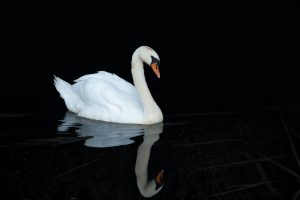Short answer
The average lifespan of a swan is around 10 to 20 years.
Life expectancy
The average lifespan of a swan varies depending on the species and various environmental factors. Generally, swans have an average lifespan of 10 to 20 years in the wild, although some species can live longer. Mute swans, one of the most common swan species, typically live for about 20 to 30 years in the wild, but have been known to live up to 40 years or more in captivity. However, their lifespan can be significantly shorter in areas with high predation or limited food resources.
Factors influencing the lifespan of swans include the availability of food sources, exposure to predators, and the overall health of the individual. Swans primarily rely on aquatic vegetation and small invertebrates for sustenance, so the availability and quality of these food sources can impact their survival. Additionally, predation by foxes, raccoons, and other animals can pose a threat to swans, particularly during mating and nesting seasons. Furthermore, pollution, habitat destruction, and human interference can also negatively affect their lifespan.
In conclusion, swans have an average lifespan of 10 to 20 years in the wild, with species like mute swans potentially reaching 40 years in captivity. The quality and availability of food sources, the presence of predators, and human activities greatly influence their lifespan. Protecting their habitats, ensuring sufficient food resources, and minimizing human disturbances can play a crucial role in preserving the lifespan of swans.
Some interesting facts about Swan
- Swans are one of the largest flying birds in the world, with some species measuring up to 1.5 meters (5 feet) in length and having a wingspan of over 3 meters (10 feet).
- These graceful birds are known for their distinctive long necks and white plumage, although some species can also have black or gray feathers.
- Swans are monogamous creatures, typically mating for life. They form strong pair bonds and often demonstrate elaborate courtship displays.
- Unlike most other birds, swans have a specialized gland located near the base of their tail called the "pectoral gland." This gland produces an oily substance that the swans rub on their feathers, helping them to stay waterproof and buoyant in the water.
- Swans are strong and powerful swimmers. Despite their large size, they are capable of reaching speeds of up to 37 kilometers per hour (23 miles per hour) when swimming.
Summary
Swans typically live for about 10 to 20 years in the wild, but they can live longer in captivity, with some reaching up to 30 years. Their lifespan is influenced by various factors including the species, habitat, and environmental conditions. While reaching these ages is common, it is worth noting that there have been some exceptional cases where swans have lived for over 40 years. Overall, swans are graceful and elegant birds that have relatively long lifespans, adding to their enchanting allure in both natural and captive environments.




